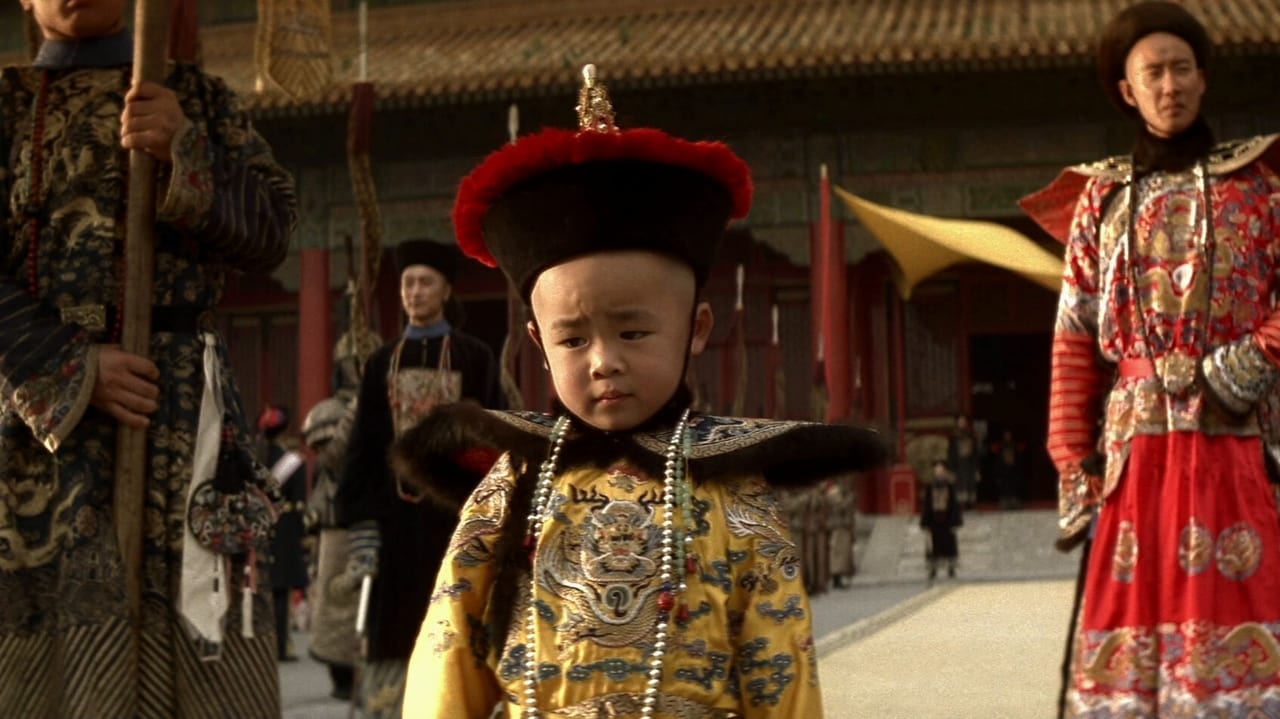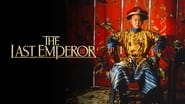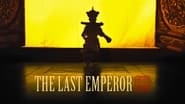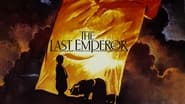cinemajesty
Film Review: "The Last Emperor" (1987)An historic figure run by tradition, loved by the sex-reluctant woman of a perfect-gene, pushed out of his own country by Japanese occupying China in World-War-II, the title-given "Last Emperor" of China, portrayed by 34-year-old John Lone within the majority of fulminate directed indepentely-produced world cinema motion picture by Bernardo Bertulucci, at age 46, when actress Joan Chen steals the initial story-arc of a human character presenting never-seen-before decay in flawless skinnish appearance into oblivion of drug abuse due to loose strings of a former all-too fading lover as character of Wan Jung in shots of never-too-forget narcissus-eating proportions, when the witnessing audience must endure a 150-plus-Minute picture to come full circle in awe-struck heart-break.Cleaning sweep of nine-Academy-Award-nominations , without any Award-nominated performances happen, to legendary nine-Academy-Award-wins at the Oscars at its 60th edition, presented on April 11th 1988 in Los Angeles, this exceptional motion picture of a particular human condition from putting a human being to power by birth-right and nevertheless due to the inevitable circle of life, the biopic main character of Pu Yi, living on this "Earth" from 1906-1967, here portrayed in life-determing proportions by actor John Lone, who only once again had been able to charge for the big screens of Hollywood in undermined graphic novel all-too-shy PG-13 adaptation of "The Shadow" starring Alec Baldmin directed Russell Mulcahy, when "The Last Emperor" lives from director Bernardo Bertulucci's impeccable precisely-dedicated admirable beat work especially with his main cast to win throughout in award-season 1987/1988 thanks to inferior marketing international endeavors by producer Jeremy Thomas, known for make London-inhabitants-dreaming hard-boiled-crime-drama happen, the cinematic gem-to-discover "The Hit" (1984) starring John Hurt directed by Stephen Frears. "The Last Emperor" shines with real-happening Beijing, China locations and color-timing ultimate cinematography by genius-lighting-cameraman Vittorio Storaro hands-over 35mm film footage to editor Gabrielle Cristiani and mingling with score artist Ryûichi Sakamoto to come out as balanced as possible in a near-perfect biopic-picture of world cinema.Copyright 2018 Cinemajesty Entertainments LLC
ElMaruecan82
The poster of "The Last Emperor" shows a chubby little boy in ceremonial dress with the majestic palace of the Forbidden City in the background. While richly evocative, it will probably give the wrong idea to the audiences expecting 'another' costume historical drama, or one of these sweeping Oscar-swiping epics. Not to mention that the last emperor of China doesn't play in the same league than Gandhi or Lawrence of Arabia, as far as historical magnitudes go.But it's precisely because the last emperor of China wasn't exactly an icon or a major history player that his story works on a narrative level, he's passive enough to be a foil to the more turbulent history of China, but strong-willed enough to drive the story within his own 'limited' power. Yes, 'limited' is the word and what an irony for the ruler of the largest and most secular Empire in the world to have spent his whole life powerless. Indeed, summoned to the Forbidden City as a toddler, his childhood coincided with the Republican era where his power never exceeded the limits of the Forbidden City
which didn't prevent him from an imperial upbringing with its gallery of bowing servants and playing eunuchs. These scenes look like your typical history epic material except that Bertolucci makes the right choice by telling the story through flashbacks. It actually opens with the arrest of Pu Yi (John Lone) after World War II and his transfer to Funchu Prison as a War criminal and traitor. One would think that death is the penalty awaiting him, he even tries to precedes his executioners by cutting his wrists, and feeling a washbasin with such a symbolic red, but People's Republic of China has other plans for the last living remain of the old order. Pu Yi is coerced into confessing his crimes, and his collaboration with the Japanese regime whose actions against Chinse people have been overshadowed by the Holocaust.Pu Yi's motives become all murky yet captivating from a narrative level: was he driven by ambition? Was he holding a grudge against the Republic that dethroned him? Bertolucci doesn't take a specific side apart from showing a man who's been out of touch all his life, and one-step behind the march of history. There's a crucial moment during his reign over the puppet state of Manchouko, where he makes a speech meant to assert the independence of the country, the Japanese diplomats leave the place, followed by the Chinese staff. Pu Yi realizes that a ruler of men, he'll never be. This scene occurs at the two thirds of the film but it adds a new tragicomic dimension to all the protocol and ceremonials from the first act.Indeed, what makes "The Last Emperor" such a compelling story is that the film never seems to 'endorse' what it shows, it clearly has a stance over the imperial over-zealous decorum, and as viewers, we can only empathize with Pu-Yi when he transitions from an obedient kid to the rebellious young man who goes as far as cutting his plait. The character of Johnston, Peter O'Toole as the Scottish mentor, is crucial, because he's Pu Yi's window to the Occidental world, literally opening his eyes since he's the one forcing the imperial establishment to buy the Emperor glasses. He also teaches him how to ride a bicycle, which leads to another crucial scene where Pu-Yi learns he can't even leave the City, another eloquent irony. The fascination toward the Occidental world is obvious and Pu Yi, as well as his new wife Wanrong (Joan Chen) grow progressively Occidentalised until they finally get fully rid of their traditional burden after the Republican coup, and their exile from the City. Later, Pu Yi is shown singing Bing Crosby during a reception, which establishes the long road from that 'golden child' of the start. The film shows natural born outcasts, caught in the turmoil of a time that made their collaboration with Japan tragic because it was inevitable. Pu Yi's concubine becomes a Japanese spy and is quite vocal about it, Wanrong becomes an opium addict, and Pu Yi a traitor to his own country.But the film takes an interesting angle toward the end, it doesn't make the Chinese regime more evil than we'd expect, although it doesn't sugarcoat the devastating effects of the Chinese revolution. One of the camp commandants encourages Pu Yi to confess his crimes, as the step for redemption is the awareness of guilt, but for the real crimes. Pu Yi collaborated with the Japanese but he could never have known about the biological crimes. His re-education reaches a new level when the commandant realizes he can't even tie his shoe or do anything alone, he's put in a cell where he must live in community, and learn the hardship of being one-among-the- others, and obeying certain rules, like to pee in silent on the side of a bucket.Finally, we see him at the twilight of his life, as a free, serene gardener who have embraced the spirit of new China, the film comes full circle with his life when he meets a child in the Forbidden city and tells him he used to be the Emperor, and gives him a pet cricket he received when he first sat on the throne. It's quite fascinating that he was the exception to the rule, the one person who could have been positively affected by the Chinese revolution, since he spent all his life like a living anachronism and was the perfect candidate for a re-education, and a life full of such ironies was a perfect candidate for a biopic.And behind its Best Picture prestige facade, "The Last Emperor" is a powerful character study of a man, whose transition echoed his own country, because like China, the Last Emperor had to make his own (r)evolution.
Kirpianuscus
out of definition. because it has the virtue to be more a trip than a film. because it reminds old jewelries. and because it presents a slice of history, memorable scenes and psychology of a world looking for the best way to survive. it is Bertolucci vision about the life of Pu Yi. but the emperor is only a symbol . because the film becomes in its second half a parable about the illusion, purpose of life, the other, need of certitude. a film who seduce for details and delicate beauty. a film of ink and cricket. and the presence of Peter O Toole. it seems be a revelation . about yourself. about the challenges of history. about the meaning of decisions. about the fight of a victim.
Lee Eisenberg
Bernardo Bertolucci's sweeping epic "The Last Emperor" is mostly a look at the life of Puyi, whose reign witnessed massive political changes in China. Like Steven Spielberg's "Empire of the Sun", released around the same time, the movie helps one understand why modern China is like it is. The story gets told as a flashback, with the imprisoned Puyi remembering the different stages of his life. The Communists charge him with collaborating with the Japanese occupation of Manchuria, but this new government has become just as bad. There has been no change in China's politics from the imperial era to the republican era to the communist era. As emperor, Puyi was confined to the Forbidden City, and now he suffers a new kind of confinement.Bertolucci makes use of colors the same way that Stanley Kubrick did, adding up to a most impressive movie. It won nine well deserved Academy Awards including Best Picture. John Lone puts all his effort into the role of Puyi, and has fine support from Joan Chen, Peter O'Toole, Victor Wong and others. It's over two and a half hours, but it's worth the effort so that you can understand how the world's most populous country ended up like it is today. Watch this one and Spielberg's movie.



 AD
AD















